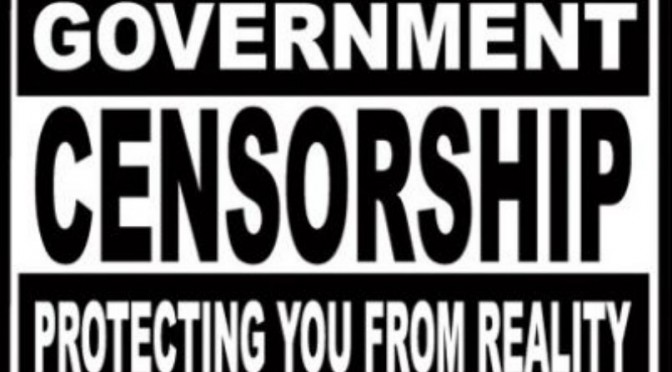The letter below was sent to Peter Wanless, CEO of the National Society for Prevention of Cruelty to Children, on Friday 10th April. It is signed by leading academics, sex educators, journalists and campaigners.
To: Peter Wanless, Chief Executive Officer, NSPCC
Dear Mr Wanless,
We write to express our deep concern about a report you published last week, which received significant press coverage. The report claimed that a tenth of 12-13 year olds believe they are addicted to pornography, and appears to have been fed to the media with accompanying quotes suggesting that pornography is causing harm to new generations of young people.
Your study appears to rely entirely on self-report evidence from young people of 11 and older, and so is not – as it has been presented – indicative of actual harm but rather, provides evidence that some young people are fearful that pornography is harming them. In other words, this study looks at the effects on young people of widely published but unevidenced concerns about pornography, not the effects of pornography itself.
It appears that your study was not an academic one, but was carried out by a “creative market research” group called OnePoll. We are concerned that you, a renowned child protection agency, are presenting the findings of an opinion poll as a serious piece of research. Management Today recently critiqued OnePoll in an article that opened as follows: “What naive readers may not realise is that much of what is reported as scientific is not in fact genuine research at all, but dishonest marketing concocted by PR firms.”
There have been countless studies into the effects of porn since the late 1960s, and yet the existence of the kinds of harm you report remains contested. In fact, many researchers have reached the opposite conclusion: that increased availability of porn correlates with healthier attitudes towards sex, and with steadily reducing rates of sexual violence. For example, the UK government’s own research (1) generated the following conclusion in 2005: “There seems to be no relationship between the availability of pornography and an increase in sex crimes …; in comparison there is more evidence for the opposite effect.”
The very existence of “porn addiction” is questionable, and it is not an accepted medical condition. Dr David J Ley, a psychologist specialising in this field, says: “Sex and porn can cause problems in people’s lives, just like any other human behavior or form of entertainment. But, to invoke the idea of “addiction” is unethical, using invalid, scientifically and medically-rejected concepts to invoke fear and feed panic.” (2)
Immediately following the release of your report, the Culture Secretary Sajid Javid announced that the Tories would be introducing strong censorship of the Internet if they win the next election, in order to “protect children” from pornography. The Culture Secretary’s new announcement would probably lead to millions of websites being blocked by British ISPs, should it come into force. We would point out the experience of the optional “porn filters”, introduced in early 2014, which turned out in practise to block a vast range of content including sex education material.
The BBC news website quotes you as saying, in response to the minister’s announcement: “Any action that makes it more difficult for young people to find this material is to be welcomed.” We disagree: we believe that introducing Chinese-style blocking of websites is not warranted by the findings of your opinion poll, and that serious research instead needs to be undertaken to determine whether your claims of harm are backed by rigorous evidence.
Signatories:
Jerry Barnett, CEO Sex & Censorship
Frankie Mullin, Journalist
Clarissa Smith, Professor of Sexual Cultures, University of Sunderland
Julian Petley, Professor of Screen Media, Brunel University
David J. Ley PhD. Clinical Psychologist (USA)
Dr Brooke Magnanti
Feona Attwood, Professor of Media & Communication at Middlesex University
Martin Barker, Emeritus Professor at University of Aberystwyth
Jessica Ringrose, Professor, Sociology of Gender and Education, UCL Institute of Education
Ronete Cohen MA, Psychologist
Dr Meg John Barker, Senior Lecturer in Psychology, The Open University
Kath Albury, Associate Professor, UNSW Australia
Myles Jackman, specialist in obscenity law
Dr Helen Hester, Middlesex University
Justin Hancock, youth worker and sex educator
Ian Dunt, Editor in Chief, Politics.co.uk
Ally Fogg, Journalist
Dr Emily Cooper, Northumbria University
Gareth May, Journalist
Dr Kate Egan, Lecturer in Film Studies, Aberystwyth University
Dr Ann Luce, Senior Lecturer in Journalism and Communication, Bournemouth University
John Mercer, Reader in Gender and Sexuality, Birmingham City University
Dr. William Proctor, Lecturer in Media, Culture and Communication, Bournemouth University
Dr Jude Roberts, Teaching Fellow, University of Surrey
Dr Debra Ferreday, Senior Lecturer in Sociology, Lancaster University
Jane Fae, author of “Taming the beast” a review of law/regulation governing online pornography
Michael Marshall, Vice President, Merseyside Skeptics Society
Martin Robbins, Journalist
Assoc. Prof. Paul J. Maginn (University of Western Australia)
Dr Lucy Neville, Lecturer in Criminology, Middlesex University
Alix Fox, Journalist and Sex Educator
Dr Mark McCormack, Senior Lecturer in Sociology, Durham University
Chris Ashford, Professor of Law and Society, Northumbria University
Diane Duke, CEO Free Speech Coalition (USA)
Dr Steve Jones, Senior Lecturer in Media, Northumbria University
Dr Johnny Walker, Lecturer in Media, Northumbria University
Added post-publication:
Dr Anna Arrowsmith
Tuppy Owens, veteran campaigner for sexual rights for disabled people
Eric Paul Leue, Director of Sexual Health & Advocacy, kink.com
Footnotes:
1) http://stakeholders.ofcom.org.uk/binaries/internet/explicit-material-vod.pdf Page 15
2) Article published at sexandcensorship.org by Dr David J Ley https://sexandcensorship.org/2013/11/sex-porn-addictive-david-ley/
